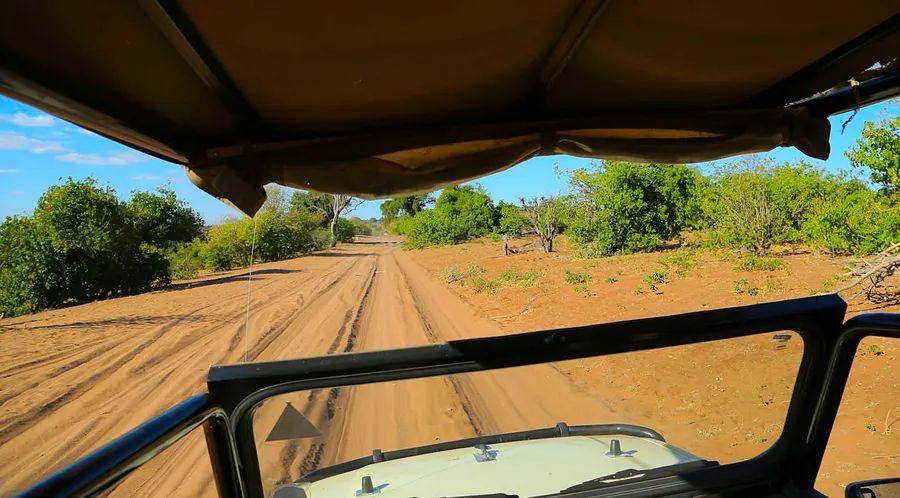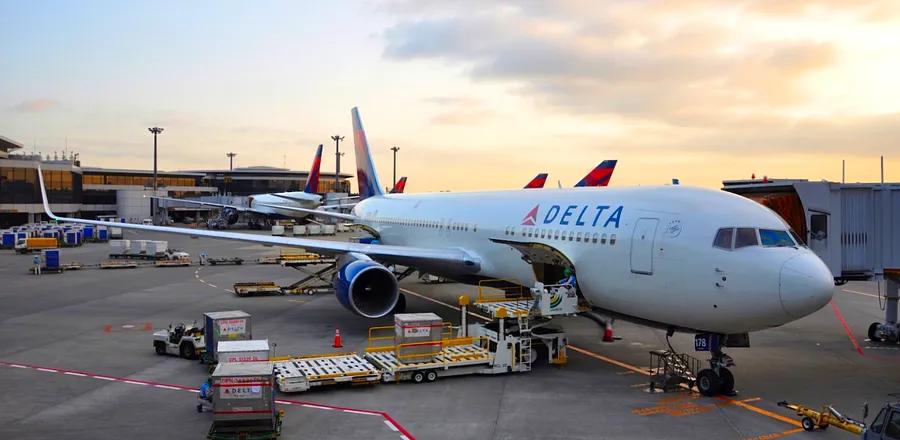Budget-Friendly Botswana

While Botswana is among the pricier destinations in Africa, it remains a must-visit for safari enthusiasts for compelling reasons: its expansive, wild landscapes, unfenced national parks, and abundant wildlife.
The country has embraced a conservation approach centered on high-end, low-volume tourism, ensuring it remains free from overcrowding and mass-market resorts. While there are plenty of luxurious lodges offering butlers to draw your bath, tasting menus that rival Michelin-starred restaurants, and wine cellars that would fit right in at fine dining establishments in London or New York, with thoughtful planning, experiencing Botswana can be affordable.
Here are our top tips for maximizing your budget while in Botswana.
 That feeling when you’ve just saved some cash on your Botswana adventure © poco_bw / Getty Images
That feeling when you’ve just saved some cash on your Botswana adventure © poco_bw / Getty ImagesDaily expenses in Botswana
4WD rental per day: starting at US$150
Camping in national parks and reserves: starting at US$20 per person
Camping in a campsite: around US$30 per tent
Double room in a campsite (self-catering): from US$50
Double room in a mid-range lodge (half-board): starting from US$100 per person
Double room in a four-star lodge (all-inclusive): starting from US$500 per person
Suite in a luxury lodge (all-inclusive): from US$1000 per person
Intercity bus: starting at US$25
Coffee: US$2.50
Sandwich: US$4
Dinner for two: US$22
Beer/pint at the bar: US$3
Scheduled flight from Maun to Kasane: around US$65
Scenic flight over the Okavango Delta (45 minutes): approximately US$100
Canoe trip in the Okavango Delta: about US$100
Travel to luxury lodges during the safari shoulder season
Finding good deals can be as rare as spotting a black rhino during Botswana's peak season (June to September). Opt for the shoulder season (April–May and October–November) instead. This is when you can find great bargains on accommodations and 4WD rentals. While the weather can be unpredictable as it shifts from wet to dry, Botswana remains teeming with wildlife, especially near permanent water sources.
Also, make sure to consider the flight distance to your selected luxury lodge from Maun. Flying is quicker, but the farther your lodge is, the more fuel you'll use and the higher the return ticket price. To lower costs, you can drive to some luxury accommodations in the southeastern delta and Khwai regions, or inquire about boating access between camps.
Take advantage of the rainy season for great deals in Botswana
The green season (or wet rainy season) from December to March offers even lower prices, with some lodges reducing rates by up to 40%. However, some may close entirely during the wettest months of January and February. While roads can become tricky to navigate, the rains transform the landscapes into lush greenery and mark the start of the zebra migration at Nxai Pan National Park. Regions like Chobe National Park and Moremi Game Reserve in the Okavango Delta are brimming with wildlife, making any time of year a good time to visit.
 Embark on a DIY 4WD safari in Botswana to cut costs © Poncho / Getty Images
Embark on a DIY 4WD safari in Botswana to cut costs © Poncho / Getty ImagesEmbark on a self-drive safari to save money
If you're skilled at driving a 4WD, a self-drive safari is among the most cost-effective ways to experience Botswana: renting for a week can be less expensive than a single night at a luxury lodge. You can journey from desert to delta at your own pace, taking time to observe playful lion prides or watch wild dogs at their dens—it's entirely up to you!
However, thorough preparation is essential. Map out your route (no driving after dark) and secure campsite reservations and national park permits ahead of time. Download an offline map like Tracks4Africa and consider renting a satellite phone for any emergencies when you're off the beaten path.
You can rent a vehicle from providers like Avis, or spend a little more for a fully equipped 4WD that includes a rooftop tent and cooking equipment from a self-drive safari expert like Drive Botswana, which can also assist in planning your itinerary and booking your accommodations. Your additional expenses will mainly involve fuel, food, drinking water, and firewood, all of which are affordable in Kasane or Maun.
Consider participating in a small-group adventurous mobile safari
Participate in a small-group 4WD tour where you’ll set up camp at various bush locations, dining under the stars while leaving no trace behind. You’ll be immersed in nature as soon as you unzip your tent, accompanied by an exceptional guide who makes spotting wildlife effortless.
If you enjoy being hands-on—setting up and taking down your tent, washing dishes, and assisting with camp duties—a semi-participation safari is the most economical choice. You'll share a two-person tent along with the bush toilet and bucket shower; all you need is a sleeping bag.
Alternatively, you can upgrade to a fully serviced mobile safari, which remains significantly cheaper than a luxury lodge. In this option, your walk-in tent is equipped with a camp bed and an en-suite bathroom. Consider Letaka Safaris’ 10-day all-inclusive Northern Highlights safari, starting from US$3725 per person during the green season.
 To save money, book your mokoro (canoe) tour directly with a local poler © Michele Westmorland / Getty Images
To save money, book your mokoro (canoe) tour directly with a local poler © Michele Westmorland / Getty ImagesEmbark on a mokoro canoe camping trip starting from Maun
While many high-end luxury lodges in the delta offer mokoro (canoe) excursions, you can also set up your own mokoro adventure from Maun. The Okavango Kopano Mokoro Community Trust is a central organization for local polers and operates in the eastern Okavango within the NG32 concession, about an hour's drive north of Maun, depending on the water levels.
Trips vary from day excursions (including a two to three-hour round-trip 4WD drive to the launch point) to budget-friendly multi-day camping adventures on islands surrounded by floodwaters, making thorough planning essential. Most excursions include guided nature walks, so remember to pack a hat, sturdy shoes, and sunscreen.
There are two ways to support local polers. You can book directly through the trust office in Maun and bring all your own supplies, such as tents, food, and cooking gear for your overnight stay in the delta. Alternatively, opt for a mobile safari operator that provides all the necessary camping equipment (including private pit latrine facilities and stretchers for a good night's sleep) along with delicious meals, allowing you to relax and enjoy the experience.
Hop on an overland truck to visit all the major attractions
Group safaris vary widely: if you have plenty of time but are short on cash, overlanding in a specially designed truck is a traditional way to discover the African continent, from Cairo to Cape Town and beyond.
With operators like On the Go Tours and Intrepid, Botswana is often combined with Victoria Falls, Namibia, and South Africa for itineraries lasting 10 days or more. These options are generally more affordable than small-group tours, as they include campsites, meals, and some activities, making them a fantastic way to connect with fellow travelers, especially if you're exploring Botswana solo.
Opt for drive-in camps rather than fly-in ones
Due to Botswana’s vastness and the remote nature of certain parks and reserves, some camps can only be reached via expensive charter flights. Instead, select accessible locations and accommodations that can be easily reached by road, such as the wildlife-rich Moremi Game Reserve, the easily accessible Chobe National Park, or Baines’ Baobabs in Nxai Pan National Park.
Concentrate on visiting a single national park or reserve
You don't need to explore multiple national parks and reserves to enjoy diverse habitats and wildlife; concentrating on a specific area can help reduce vehicle rental or transfer costs.
Identify your top interests: if you're keen to see elephants, visit Chobe. If spotting African wild dogs is a must, check out Moremi Game Reserve. For a chance to interact with meerkats, head to Gweta and the Makgadikgadi Salt Pans.
Trade a luxury lodge for a tent
While wild camping is prohibited in Botswana, the country offers a plethora of excellent campsites. For a genuine nature experience, choose an unfenced section of a national park or reserve, where you may encounter various wildlife. Many sites feature a water faucet and fire pit, plus shared bathrooms and showers. Be sure to book your spot ahead of time, particularly from June to September, and set up camp before nightfall.
Alternatively, you could choose a more vibrant spot to pitch your tent, like Planet Baobab, where you can enjoy an open-air bar and restaurant alongside impressive facilities, all under the towering baobab trees reminiscent of the wise Deku Tree from the Legend of Zelda series.
 Purchasing food from roadside stalls and markets can help you save money © poco_bw / Getty Images
Purchasing food from roadside stalls and markets can help you save money © poco_bw / Getty ImagesCut costs by staying in the urban environment
While it may lack the charm of wilderness camping, staying in Maun—the gateway to the Okavango Delta, Nxai Pans, and the Central Kalahari—or in Kasane, close to the Chobe riverfront, allows access to more affordable lodging, grocery stores, and local eateries. Use the savings to treat yourself to full-day game drives, sunset cruises, or even scenic flights.
Keep an eye out for budget lodges in prime locations
If you prefer a cozy room with four solid walls and a roof, you can still save on your Botswana trip. Smart travelers should look for budget-friendly accommodations near the upscale safari lodges; while they may lack some luxury features, they offer the same stunning landscapes and wildlife experiences.
For instance, Planet Baobab serves as a more affordable alternative to the famous Jack’s Camp in the Makgadikgadi Pans. If camping isn't your style, you can opt for a rondavel-style room. Game drives will bring you face-to-face with desert-adapted lions, playful meerkats, and the breathtaking zebra migration.
Wildlife spotting can happen right from the road
With no fences confining wildlife to reserve limits, animals frequently cross major highways in Northern Botswana, particularly between Nata and Kasane on the way to Chobe National Park, as well as between Nata and Maun, which goes through Makgadikgadi National Park. It’s common to see elephants, giraffes, zebras, ostriches, sables, and even Southern ground hornbills along these paved routes.

1

2

3

4

5
Evaluation :
5/5